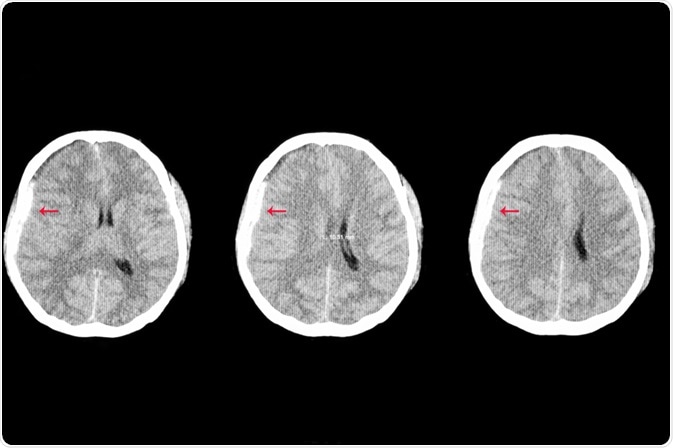Traumatic brain injury (TBI), which occurs when an external force impacts the brain, is the leading cause of death and disability in children and young adults in the United States.

Image Credit: Tomatheart/Shutterstock.com
The effects of TBI can be permanent, and even a mild case can result in symptoms with long-lasting effects on health and quality of life.
Typically, most symptoms of TBI will improve following recovery from the injury, and even before full recovery has occurred. In some cases, however, patients will develop post-concussion syndrome (PCS), which can persist long afterward.
Symptoms of PCS can include fatigue, dizziness, memory problems, difficulty sleeping, and trouble concentrating. Long-lasting cognitive impairment can persist even after recovery from the original TBI and through treatment like cognitive rehabilitation therapy.
However, there's evidence that these cognitive impairments aren't necessarily permanent, and can be reversed with the right treatment.
How Can Brain Damage Be Treated?
While there is no standard treatment for reversing brain damage, there are a few different therapies that have demonstrated efficacy in a handful of patients.
Hyperbaric oxygen therapy, which uses higher-than-atmospheric pressure oxygen to treat disease, has been demonstrated to be effective in helping traumatic brain injury. In one case, it nearly completely reversed the brain injury of a 2-year-old girl who drowned in a swimming pool.
Other research has suggested that lifestyle changes and supplements can also be effective in reversing the effects of chronic trauma in football players. In one study, scientists tested the effectiveness of a brain-health protocol that included weight loss, fish oil, and a supplement that included nutrients that enhance blood flow. After six months, the study subjects were found to have improved cognition and cerebral blood flow.
Some newer, more experimental treatments are also currently being researched. In one new study, researchers at the University of California experimented with the use of a memory-enhancing drug on mice with brain injury.
The researchers found that after four daily doses of the drug, concussed mice were able to perform memory-related tasks as well as their non-concussed counterparts. The drug hasn't been prepared for human trials yet, but researchers are hopeful it could be used to treat TBI in the future.
Future research could offer more potential treatment options. For example, some scientists hope to soon test the effectiveness of pharmaceuticals that prevent the growth of hyaluronic acid fragments, which have been identified as a potential "bad actor" that may lead to some of the most severe physical deficiencies associated with brain damage.
How Is Brain Damage Evaluated?
In general, quick identification and treatment of TBI will provide the best long-term health outcomes. If, after experiencing a blow to the head you begin to experience like headache, slurred speech, vomiting, or confusion about the date or time, you should seek treatment as soon as possible.
Certain diagnostic methods, like MRI brain scans, can provide your doctor with the best possible information about the severity of your TBI and determine essential prognostic information. This can help ensure you get the treatment you need.
Options for Treating Brain Damage
TBI can easily lead to severe, long-term symptoms that may persist even after a recovery has been completed. In cases like these, there is no standard method of treatment for brain damage caused by TBI. There are, however, a few experimental options — like hypobaric oxygen therapy — and some others are being researched.
In cases where a person suspects they've sustained a TBI, the best way to ensure good long-term health outcomes is to seek help as soon as possible. With the right diagnostic method, doctors can identify the severity of TBI, ensuring the correct treatment is provided as quickly as possible.
Further Reading
Last Updated: Apr 10, 2020